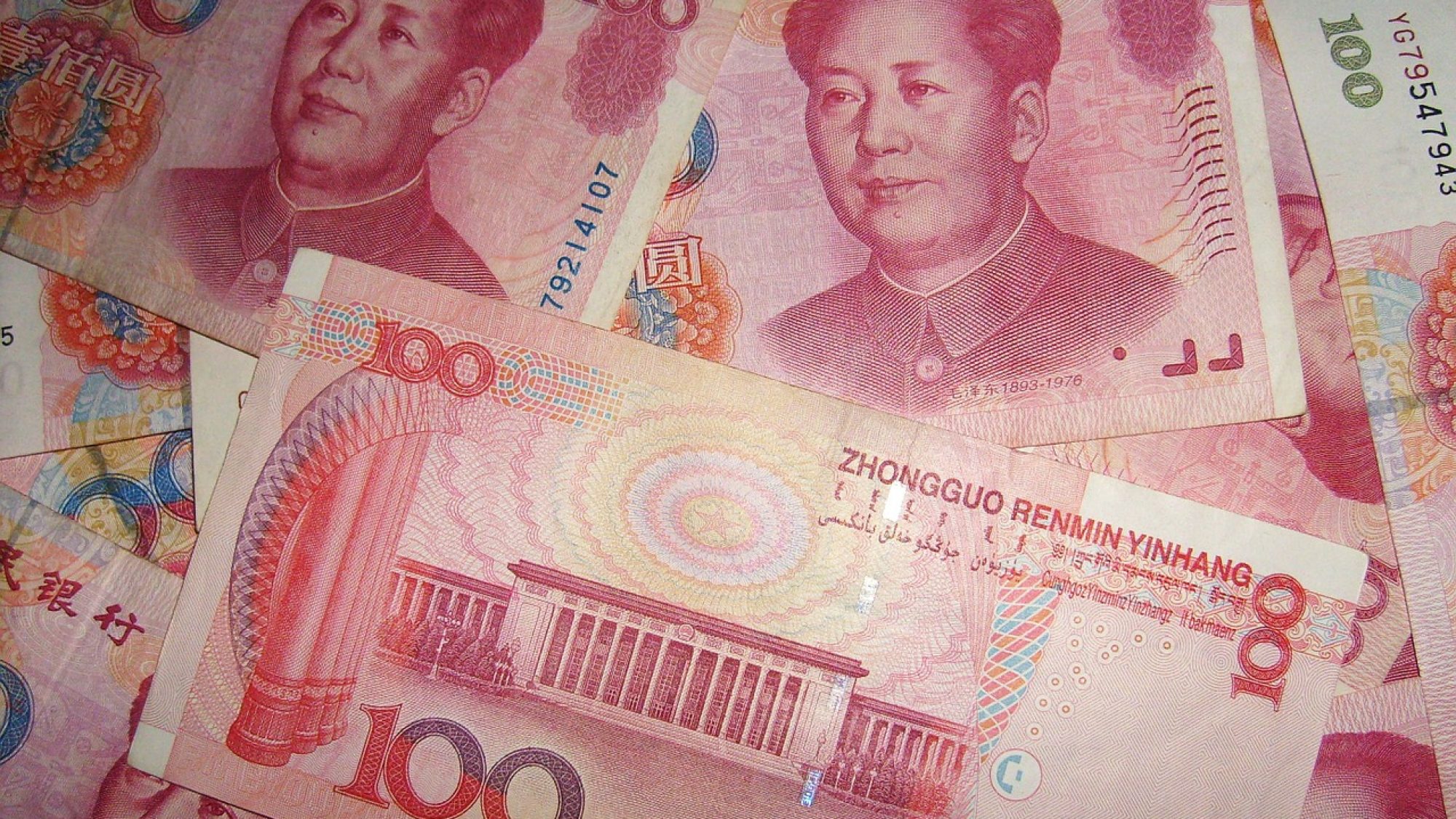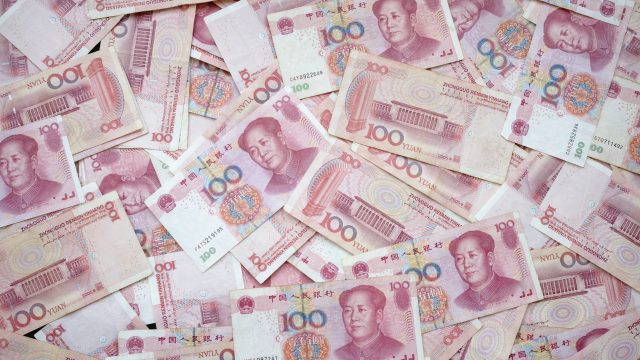
Title: What is Holding the Yuan Back? Xi is.
China’s currency has considerable economic potential, but, as a reserve currency, the yuan (also called the renminbi) remains far behind the US dollar. Political concerns help explain such underperformance. In particular, the centralization of political power during the Xi Jinping era has curtailed the yuan’s economic appeal. Political and economic reforms are the currency’s only path upward.
China’s economy is the second largest in the world. Yet, the yuan, China’s currency, remains a minor player in the global economy. Although 60 percent of worldwide official foreign exchange reserves (financial assets held by central banks) are in US dollars, just about 2.5 percent are in yuan.
Why is China’s currency underperforming the dollar to this degree? Answering that question requires understanding the factors that undergird the dollar’s dominance.
When considering how to allocate assets, central bankers consider a number of risks, of which three are central: (1) the chance that a borrower will default on their debt (credit risk), (2) the possibility that the income derived from an investment in one currency will fall relative to potential investments in alternative currencies (currency risk), and (3) the danger that an asset cannot be sold and converted into cash with sufficient speed to address a financial need (liquidity risk).
On credit risk, the US government has never defaulted on its debt. Its bonds, referred to as US Treasuries, are widely regarded as the safest store of value in the world. This perception is reinforced during moments of uncertainty, just like it was during the early days of the COVID-19 pandemic, when investors tend to rush to buy US debt. Thus, national asset managers are drawn to the dollar, in part, because of convergent perceptions that US Treasuries minimize risk.
In terms of currency risk, the dollar’s value fluctuates like all currencies with floating exchange rates. Thus, there are times when official reserves held in dollars may have performed better if they were denominated in other currencies. Overall, however, many trust the dollar’s stable value, which is backed by sound economic management.
Finally, regarding liquidity risk, the market for US Treasuries is aptly described as “the deepest and most liquid government securities market in the world.” Central banks hold US government debt because they are confident these bonds can be converted into cash at a moment’s notice.
The dollar’s popularity as a reserve currency reflects the perception that US Treasuries minimize each of the risks that reserve managers weigh.
Reflecting on the yuan and its credit risk status, the currency scores quite well. This may seem surprising, as news of major corporate defaults in China often dominate the headlines. However, were the yuan to assume a more significant role as a global reserve currency, Chinese government bonds would emerge as the primary instrument through which central banks invest. The Chinese government has a stellar reputation as a borrower with no modern historical defaults and a reliably high credit rating.
The yuan is also attractive from a currency risk perspective. Chinese government bond yields are consistently higher than similarly high-rated government bonds from advanced economies. As for exchange rate movements, the yuan is not free-floating like the monies of most major economies. Though the yuan is no longer pegged against the dollar, the People’s Bank of China (PBOC) carefully manages the currency’s value, allowing it to float within a narrow range or “band.” This exchange rate management regularly exposes China to charges of currency manipulation from critics, especially those from the United States.
But a degree of predictability in the yuan’s value may actually appeal to investors. Many other emerging market currencies are prone to significant price swings. Thus, knowing that the PBOC will intervene to prevent the yuan’s value from becoming too hot or too cold could reassure otherwise wary official investors about diversifying into a new reserve currency.
In the 1970s and early-1980s, the US Treasury and Federal Reserve frequently intervened in foreign exchange markets to influence the dollar’s value against other major currencies. US management of its currency was never as prolific as China’s is today, but such behavior by a top reserve currency issuer has compelling precedent.
Turning next to liquidity risk, while the market for Chinese government bonds is considerably smaller than the market for US Treasuries, it still ranks as the third largest sovereign bond market in the world. Yet foreign investors make up only about 10 percent of the market. By comparison, nearly one-third of the US Treasury market involves foreign investors.
This difference reflects Chinese government policy, which has, historically, kept foreigners out of its financial markets. Prior to reforms in 2012 and 2015, foreign central banks interested in participating in onshore bond markets had to seek approval from China’s State Administration of Foreign Exchange (SAFE). Once approved, their investments were capped by a set quota. Similar quotas remained in place for non-official institutional investors until 2019.
Since the global financial crisis, China’s capital account has moved in a liberalizing direction for foreign investors but at a slow and non-uniform pace. For residents in China, however, arcane capital controls—policies that restrict the movement of money out of China—remain the norm. Indeed, in 2015, amid a massive outflow of capital, Chinese officials clamped down on residential outflows with renewed vigor.
Herein lies a key challenge for the yuan’s global ambitions. China’s commitment to exchange rate stability would not hinder the yuan’s appeal so long as such efforts were realized through periodic intervention in foreign exchange markets (similar to the approach the United States used in decades past). However, in reality, capital controls remain a vital tool through which Beijing exerts control over the currency’s value.
That China remains comfortable using capital outflow controls is a serious concern for foreign investors—including central banks—since controls have implications for liquidity. For instance, outflow controls restrict investors’ ability to sell renminbi-denominated assets and exchange the proceeds for foreign currencies. When used, they can effectively lock investors’ capital in China.
Presently, the most austere measures have targeted residents, not foreigners. However, as foreigners play a larger role in Chinese bond markets, a period of rapid outflows would tempt regulators in Beijing to clamp down regardless of investors’ nationality.
Can central banks trust that Beijing would maintain its commitment to the free flow of foreign capital if it were faced with a major financial crisis? The tepid interest in the renminbi suggests many are skeptical.
The increasing concentration of power in the hands of Xi Jinping has only increased the liquidity risk associated with China’s currency. As Xi has consolidated his control of the economy over the last decade, China has become less transparent and more unpredictable.
Examples abound. One such instance of China’s increasing volatility is the three month disappearance of Chinese billionaire and business tycoon Jack Ma in 2020 as Xi apparently set to humble the Alibaba chief for crossing the “invisible red line” of acceptable business practices. Then, there was Xi’s abrupt decision to limit how long young people could play video games, tanking equity values of firms operating in the gaming industry. Sudden regulatory changes by Xi also shook the online tutoring industry in China. These select cases are emblematic of Xi’s broad crackdown on “big tech,” which shows no sign of slowing down.
These extreme policy moves erode trust in China’s political system, further animating investor skittishness in holding renminbi. In China, it seems as if the rule of law has been replaced by the personalistic, anti-market “Rule of Xi.” Foreign investors must consider the possibility that Chinese financial assets may become at once illiquid and non-convertible if Xi determines that China’s economic stability is threatened by capital outflows.
Despite some appealing attributes, the renminbi is unlikely to seriously challenge the US dollar’s reserve currency status so long as politically induced liquidity risk concerns endure.
If Beijing is truly keen on promoting the yuan’s global prospects, it must address the concerns of foreign investors, including central banks. To do this, it should finally move forward with lasting financial liberalization alongside meaningful political reforms. The former would entail the elimination and renunciation of capital outflow controls as a tool of exchange rate management. The latter would require the Chinese Communist Party to unwind the last decade of power concentration in the hands of Xi Jinping.
Presently, the chances of these steps taking place remain even smaller than the yuan’s current global standing.
. . .
Daniel McDowell is an associate professor of political science at the Maxwell School of Citizenship and Public Affairs at Syracuse University. He is the author of Brother, Can You Spare a Billion? The United States, the IMF, and the International Lender of Last Resort.
Image Credit: Pixabay; Pixabay License
Recommended Articles

For a while, the globalization of the yuan seemed inevitable. In this article, we explore the recent developments regarding the Chinese currency, showing how the speculative attack of 2016 has…

The term artificial intelligence (AI) was first introduced in the 1950s, but it wasn’t until the launch of ChatGPT, which amassed over 100 million users within just two…

The Lebanese economic crisis, which began taking shape in October 2019, has been described by the World Bank as one of the top three most severe global crises since…